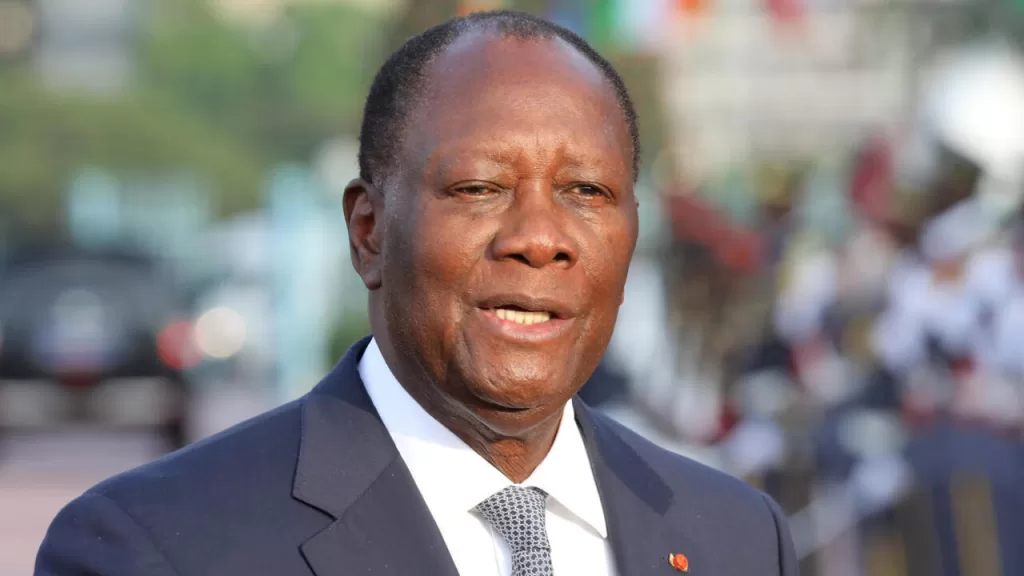
The Bureau News reports that Ivory Coast’s President Alassane Ouattara has secured a controversial fourth term in office, winning 89.77% of the vote in an election marred by political tension and boycotts, according to provisional results announced by the electoral commission on Monday.
The poll, which saw nearly nine million voters cast their ballots, was overshadowed by the exclusion of key rivals Laurent Gbagbo and Tidjane Thiam, who were both barred from contesting.
Low Turnout and Deep Political Divides
While turnout averaged just over 50%, participation varied widely. In Ouattara’s northern strongholds, voter turnout neared 100%, but in traditionally opposition-leaning regions — including parts of Abidjan and the southern city of Gagnoa — only 20% of eligible voters participated. Observers say this reflects both political fatigue and deliberate disengagement following weeks of unrest.
“The absence of major opposition figures, coupled with heightened tension before election day, discouraged participation,” said William Assanvo of the Institute for Security Studies (ISS). “Many voters stayed home, skeptical of the process.”
Barred Rivals and Legitimacy Questions
Former president Laurent Gbagbo was excluded due to a prior criminal conviction, while ex-Credit Suisse CEO Tidjane Thiam was disqualified for holding French nationality. Both men had called for a boycott, arguing that Ouattara’s continued rule undermined constitutional limits and democratic competition.
Political analyst Geoffroy Kouao told The Bureau News that “the turnout rate shows two things — strong mobilisation in pro-Ouattara areas and complete withdrawal by the opposition base.”
Opposition Rejects Results, Calls for Fresh Election
Leading opposition voices have rejected the outcome, denying “any legitimacy” to Ouattara’s victory and demanding fresh elections. Entrepreneur Jean-Louis Billon, who came second with just 3.09% of the vote, acknowledged “very low turnout in some regions” but offered cautious congratulations to the incumbent.
Despite deploying 44,000 security personnel and imposing night-time curfews in several areas, the election period witnessed violence. At least eight people were reported killed and nearly two dozen injured in election-day clashes at more than 200 polling stations.
Historical Context and Fragile Stability
Ivory Coast’s presidential contests have historically been fraught with volatility. Ouattara first came to power following the disputed 2010–2011 election against Gbagbo, a crisis that left over 3,000 people dead. His leadership since 2011 has been credited with stabilising the economy, yet critics say his fourth term marks a dangerous concentration of power in a country still healing from past divisions.
On Monday, Abidjan’s streets returned to relative normalcy after a tense and unusually quiet weekend. “The Ivorians said NO to prophets of doom,” headlined Patriote, a pro-government newspaper. In contrast, opposition paper Notre Voie described the poll as “an election reflecting a divided country.”
Regional Reactions and International Watch
West African observers, including ECOWAS and the African Union, have called for calm and restraint, urging political actors to prioritise dialogue over confrontation. Analysts say Ivory Coast’s stability remains vital to the region’s economic and security balance.
For now, Ouattara’s sweeping victory may consolidate control in the short term — but without reconciliation and reform, The Bureau News notes, the country risks replaying its painful political past under a veneer of democratic order.
 Premium News
Premium News